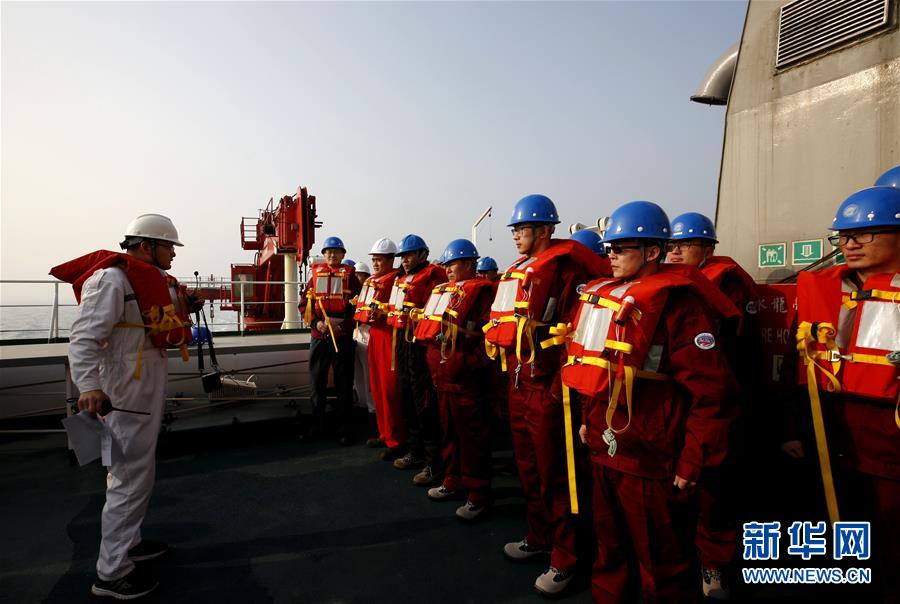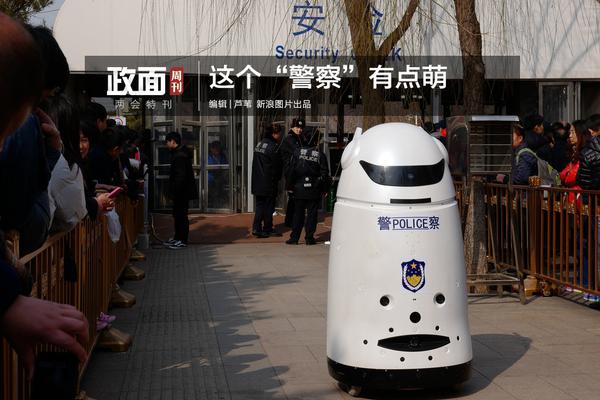
The five functional modules of the operating system are processor management, memory management, device management, file management and operation management. Processor management The most basic function of processor management is to process interrupt events. After configuring the operating system, various events can be processed.
The functions of the computer operating system include: processor management, memory management, device management, file management, job management and other functional modules. Processor management. The most basic function of processor management is to handle interrupt events. The processor can only detect interrupt events and generate interrupts and cannot process them.
Storage management is divided into several functions: storage allocation, storage sharing, storage protection, and storage expansion.Equipment management has the following functions: equipment allocation, equipment transmission control, and equipment independence. File management: file storage space management, directory management, file operation management, file protection.
The operating system should usually include the following five functional modules: (1) Processor management. When multiple programs are running at the same time, solve the problem of processor (cpu) time allocation. ( 2) Operation management. The program to complete an independent task and its required data constitute a task.
The function of the operating system is mainly reflected in the management of computer resources - microprocessors, memory, external devices, files and tasks. The operating system sets this management function into the corresponding program management module, and each management module is responsible for a certain function.That is, the five functions of the operating system.
The operating system has five functions: processor management: mainly controls and manages the work of the CPU. Storage management: mainly carry out memory allocation and management device management: mainly manage basic input and output device file management: responsible for the organization, storage, operation and protection of computer files, etc.

There are the following types of management systems: the management system of the finished product set. This kind of system is a stereotyped management system, which makes a small number of functional adjustments to the software through the parameter settings of the software.
Transaction Processing System (TPS): Operators and supervisors are used to input transactions, events, sort, list, merge updates, output detailed reports, lists and summaries, etc. Management Information System (MIS): Middle managers are used to input general transaction data and simple models to process routine reports.
Adgecal management system Academic management system is one of the most core management systems of the school, which is responsible for arranging and managing the school's teaching activities. It includes curriculum setting, teaching plan, teacher arrangement, examination management and other contents.
VMware vSphere: It is a virtualization management platform that can be used to manage virtual machines, storage and networks, etc. Nagios: It is an open source network monitoring system that can be used to monitor network devices, servers and applications, etc.
Financial subsystem: providing the function of financial management information; Decision support subsystem: make the logistics information system reach a higher level.
ERP management system brand Youyou, Jindie International Software, Wave Software, Dingjie Software, Zhenghang Software. Use friends.
1. System management refers to the information technology system that manages enterprises, and file management is one of the five major functions of the operating system.First, network management refers to the centralized management of resources on the network by network administrators through network management programs.
2. System Management regards organizational components as interrelated and interdependent systems, so it advocates applying the system concept to the management concept.
3. System management refers to the process of maintaining, managing and monitoring computer systems. As an important part of enterprise informatization construction, the importance of computer system management cannot be ignored.
bingo plus update today Philippines-APP, download it now, new users will receive a novice gift pack.
The five functional modules of the operating system are processor management, memory management, device management, file management and operation management. Processor management The most basic function of processor management is to process interrupt events. After configuring the operating system, various events can be processed.
The functions of the computer operating system include: processor management, memory management, device management, file management, job management and other functional modules. Processor management. The most basic function of processor management is to handle interrupt events. The processor can only detect interrupt events and generate interrupts and cannot process them.
Storage management is divided into several functions: storage allocation, storage sharing, storage protection, and storage expansion.Equipment management has the following functions: equipment allocation, equipment transmission control, and equipment independence. File management: file storage space management, directory management, file operation management, file protection.
The operating system should usually include the following five functional modules: (1) Processor management. When multiple programs are running at the same time, solve the problem of processor (cpu) time allocation. ( 2) Operation management. The program to complete an independent task and its required data constitute a task.
The function of the operating system is mainly reflected in the management of computer resources - microprocessors, memory, external devices, files and tasks. The operating system sets this management function into the corresponding program management module, and each management module is responsible for a certain function.That is, the five functions of the operating system.
The operating system has five functions: processor management: mainly controls and manages the work of the CPU. Storage management: mainly carry out memory allocation and management device management: mainly manage basic input and output device file management: responsible for the organization, storage, operation and protection of computer files, etc.

There are the following types of management systems: the management system of the finished product set. This kind of system is a stereotyped management system, which makes a small number of functional adjustments to the software through the parameter settings of the software.
Transaction Processing System (TPS): Operators and supervisors are used to input transactions, events, sort, list, merge updates, output detailed reports, lists and summaries, etc. Management Information System (MIS): Middle managers are used to input general transaction data and simple models to process routine reports.
Adgecal management system Academic management system is one of the most core management systems of the school, which is responsible for arranging and managing the school's teaching activities. It includes curriculum setting, teaching plan, teacher arrangement, examination management and other contents.
VMware vSphere: It is a virtualization management platform that can be used to manage virtual machines, storage and networks, etc. Nagios: It is an open source network monitoring system that can be used to monitor network devices, servers and applications, etc.
Financial subsystem: providing the function of financial management information; Decision support subsystem: make the logistics information system reach a higher level.
ERP management system brand Youyou, Jindie International Software, Wave Software, Dingjie Software, Zhenghang Software. Use friends.
1. System management refers to the information technology system that manages enterprises, and file management is one of the five major functions of the operating system.First, network management refers to the centralized management of resources on the network by network administrators through network management programs.
2. System Management regards organizational components as interrelated and interdependent systems, so it advocates applying the system concept to the management concept.
3. System management refers to the process of maintaining, managing and monitoring computer systems. As an important part of enterprise informatization construction, the importance of computer system management cannot be ignored.
Hearthstone Arena class tier list 2024
author: 2025-01-08 11:41Free sports events uefa champions league app android
author: 2025-01-08 09:29Hearthstone arena deck Builder
author: 2025-01-08 10:04 UEFA TV
UEFA TV
133.57MB
Check Walletinvestor digi plus
Walletinvestor digi plus
964.88MB
Check TNT Sports
TNT Sports
464.24MB
Check Hearthstone deck
Hearthstone deck
634.34MB
Check PAGCOR online casino free 100
PAGCOR online casino free 100
346.43MB
Check UEFA live free
UEFA live free
143.77MB
Check Hearthstone arena deck Builder
Hearthstone arena deck Builder
167.46MB
Check Casino Plus GCash login
Casino Plus GCash login
168.73MB
Check bingo plus update today Philippines
bingo plus update today Philippines
111.33MB
Check Casino Plus login register
Casino Plus login register
868.23MB
Check Free sports events uefa champions league app android
Free sports events uefa champions league app android
966.44MB
Check UEFA Champions League standings
UEFA Champions League standings
723.23MB
Check 100 free bonus casino no deposit GCash
100 free bonus casino no deposit GCash
924.84MB
Check DigiPlus stock
DigiPlus stock
219.51MB
Check UEFA Champions League live streaming app
UEFA Champions League live streaming app
418.62MB
Check UEFA live free
UEFA live free
378.37MB
Check UEFA live free
UEFA live free
152.53MB
Check Casino Plus free 100
Casino Plus free 100
147.39MB
Check Arena Plus login
Arena Plus login
916.92MB
Check UEFA Champions League live streaming free
UEFA Champions League live streaming free
872.32MB
Check DigiPlus
DigiPlus
258.76MB
Check UEFA Champions League live streaming app
UEFA Champions League live streaming app
771.77MB
Check Arena plus APK
Arena plus APK
446.73MB
Check Casino Plus
Casino Plus
683.31MB
Check Hearthstone Arena Tier List
Hearthstone Arena Tier List
953.54MB
Check Hearthstone Arena class tier list 2024
Hearthstone Arena class tier list 2024
143.93MB
Check Hearthstone deck
Hearthstone deck
142.43MB
Check Arena plus APK
Arena plus APK
865.94MB
Check bingo plus update today Philippines
bingo plus update today Philippines
896.35MB
Check Casino redeem
Casino redeem
876.66MB
Check Walletinvestor digi plus
Walletinvestor digi plus
784.23MB
Check Hearthstone arena
Hearthstone arena
919.79MB
Check Casino Plus free 100
Casino Plus free 100
376.23MB
Check UEFA live free
UEFA live free
344.94MB
Check PAGCOR online casino free 100
PAGCOR online casino free 100
798.55MB
Check UEFA Champions League live
UEFA Champions League live
158.66MB
Check
Scan to install
bingo plus update today Philippines to discover more
Netizen comments More
1874 LR stock price Philippines
2025-01-08 11:44 recommend
852 Bingo Plus
2025-01-08 11:32 recommend
281 Hearthstone Arena Tier List
2025-01-08 10:10 recommend
2475 Hearthstone Arena win rate
2025-01-08 10:07 recommend
915 Hearthstone Wild Decks
2025-01-08 09:15 recommend